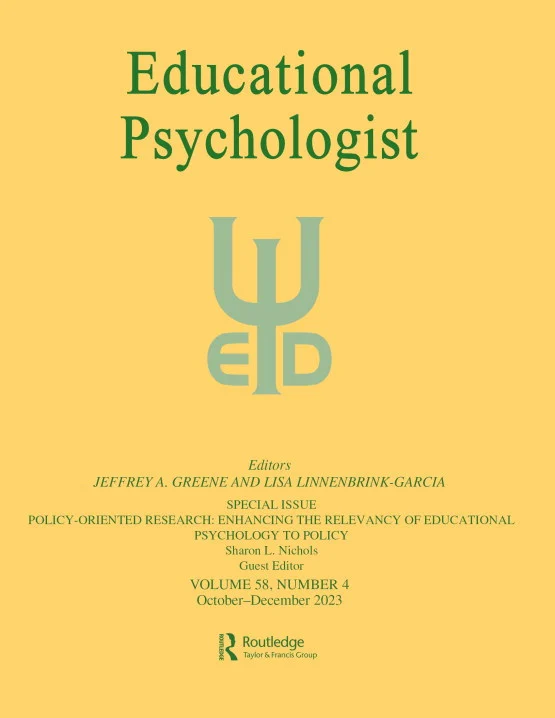后真相与科学认同:以美德为基础的科学教育方法
IF 11.4
1区 心理学
Q1 EDUCATION & EDUCATIONAL RESEARCH
引用次数: 18
摘要
后真相利用论证和证据的腐败来保护意识形态承诺和社会认同。我们区分了两种后真理环境,即认知泡沫和回声室,并认为,随着科学(和普通)教育越来越鼓励智力美德的发展和科学身份的内化,后真理的各个方面就会受到抵制。首先在美德认识论和亚里士多德美德理论中定位我们对智力美德的看法,我们认为智力品格是强烈的元认知,需要科学身份的概念来为美德的工作提供动力。我们对后真理的教育反应集中在亚里士多德启发的教学美德、元认知美德策略和科学身份的发展。科学认同的内化在道德教育和自我决定理论中得到进一步发展。我们建议进一步的理论和研究,并得出结论,科学教育是在品格教育的业务。本文章由计算机程序翻译,如有差异,请以英文原文为准。
Post-truth and science identity: A virtue-based approach to science education
Abstract Post-truth trades on the corruption of argument and evidence to protect ideological commitment and social identity. We distinguish two kinds of post-truth environments, epistemic bubbles and echo chambers, and argue that facets of post-truth are countered the more science (and general) education encourages the development of intellectual virtues and internalization of science identity. After first locating our perspective on intellectual virtues within virtue epistemology and Aristotelian virtue theory, we argue that intellectual character is strongly metacognitive and requires a concept of science identity to provide a motivational force to the work of virtues. Our educational response to post-truth focuses on Aristotelian-inspired pedagogy for teaching virtues, metacognitive virtue strategies, and the development of science identity. The internalization of science identity is further developed in terms of moral education and Self-Determination Theory. We suggest further lines of theory and research and conclude that science education is in the business of character education.
求助全文
通过发布文献求助,成功后即可免费获取论文全文。
去求助
来源期刊

Educational Psychologist
Multiple-
CiteScore
19.10
自引率
3.40%
发文量
16
期刊介绍:
The Educational Psychologist is a scholarly journal dedicated to exploring the psychology of learning and instruction. Articles in this journal encompass a diverse range of perspectives, from examining psychological mechanisms to exploring social and societal phenomena related to learning and instruction. The journal publishes theoretical and conceptual articles, as well as reviews and meta-analyses, that significantly contribute to theory or advance the methods used to explore educational psychology. Emphasizing innovation and advancing understanding, the journal does not publish articles solely reporting the methods and results of empirical studies; instead, all submissions, including reviews and meta-analyses, must offer clear implications for advancing theory. In addition to regular articles, the journal features special issues that delve into important themes in educational psychology, along with focal articles accompanied by peer commentary.
 求助内容:
求助内容: 应助结果提醒方式:
应助结果提醒方式:


